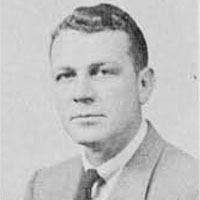
Expedition, a revised form of the University Museum Bulletin, is designed for the public. It will continue as a quarterly magazine, produced by the staff of the Museum, not only as an account of their research in archaeology and anthropology but as an expression of their ideas concerning the motive and significance of these studies in contemporary society. Today many popular books on archaeology and anthropology have reached the best-seller lists and through radio and television the studies have, for the first time, become an absorbing interest to millions. In Great Britain, particularly, this remarkable new interest in ancient tradition and history has meant that archaeological programs are now among the most popular of those broadcast by the BBC. It is in response to this new and vastly expanded public interest that we have planned a different kind of Museum publication, one which will require more thought, more skillful writing, and more concern with clear and concise accounts of the nature of our research.
Just why there should be in the mid-twentieth century this broad public interest in what was once a rather esoteric interest of antiquarians, is anyone’s guess. Many of us have observed that the strong current of nationalism which runs throughout the world in our generation has been responsible for intensified archaeological research in all continents and particularly in those regions where new nations have been revived or founded. History and tradition are essential for regional loyalty and political cohesion, a human situation which most great political leaders like Kemal Pasha Ataturk have utilized to rebuild or create powerful national states. Until recently, history for most people in the world was a matter of a few centuries or, at most, one or two millennia. Now with the rapid development of prehistoric archaeology and the study of surviving primitives, human history has expanded into tens and even hundreds of thousands of years. In many regions the relation of contemporary human societies to the soil upon which they live is now known to be so ancient that a new sense of belonging in time and place reinforces written history, tradition and legend. Hence, prehistoric archaeology like history has become of national significance.
But the new nationalism cannot alone account for a world-wide interest in the epic of man’s history on the earth. For some people, and perhaps for all of us, the study of the ancient past and the strange other-world of primitive peoples is an escape from the confusions and uncertainties of modern technological civilization. There is a kind of integrity in living with the past which no nation or people can afford to ignore. Human societies are inextricably bound up with the past and receive their compelling ideas from it. Men are part of a biological skin about the earth and as such are part of the body and mind of living matter. But the thing which makes them human is a third reality for which we have no better word than spirit. This peculiarly human quality running through thousands of generations of men ties them all together. Men freed of the past could be only monsters.
It seems to me that western civilization, now permeating most of human society, is based upon one all-important belief–the omnipotence of human reason. From this has developed the scientific method, the technological civilization of the twentieth century, and the immense human population of the earth. No other civilization has placed so much faith in the capabilities of the mind, removed its people so far from the natural environment of living things, and devised a way to destroy them by an act of human will. In spite of the humanism, social justice, and emphasis on the dignity of the individual, equally a part of western civilization, the technological culture which it has produced may appear to many persons a monstrous machine which is now beyond the control of individual human beings. The manipulation of natural forces in the delicate balance of living organisms can become terrifying. It may so far remove men from the community of the organic world that their self-destruction is inevitable.
Faced with the ominous possibilities of their own creation, many thoughtful people may find reassurance in an “escape” to the past, not only in the limited range of history where individual lives play a major role, but in the vast range of prehistory where mankind is the central figure of an epic. Human society and the human spirit are as ancient as human life. The omnipotence of the human mind is a theory of one brief epoch. To see our current theories and our particular culture in proportion against the background of thousands of generations and as a part of the organic world, can lead to that intellectual integrity so necessary in contemporary society.
